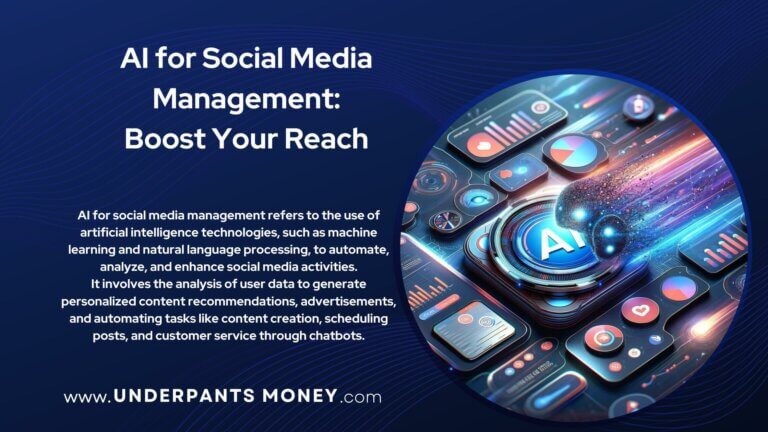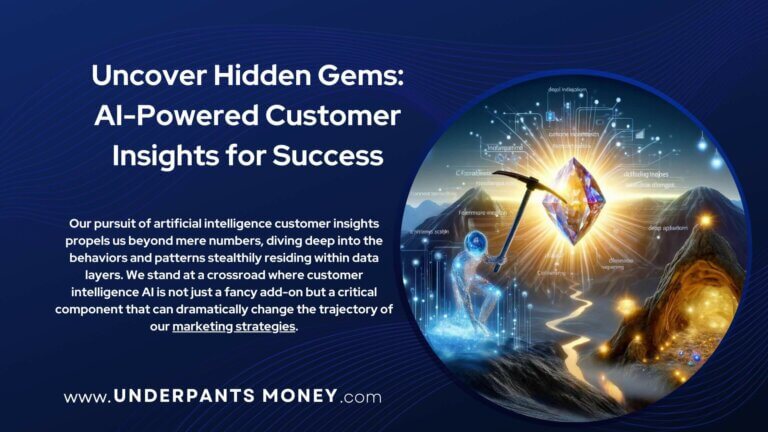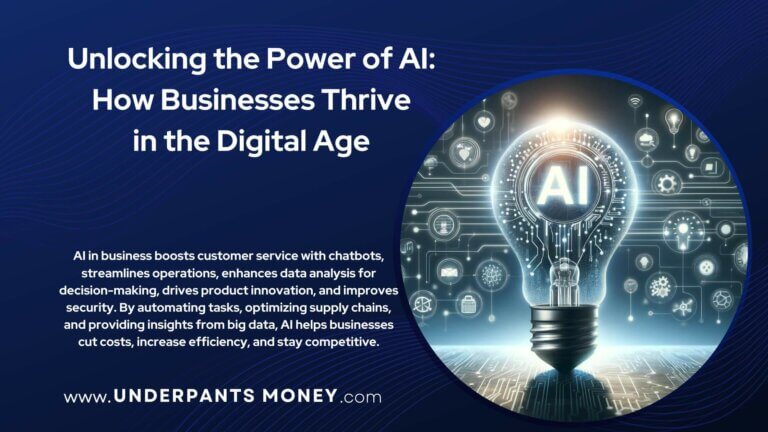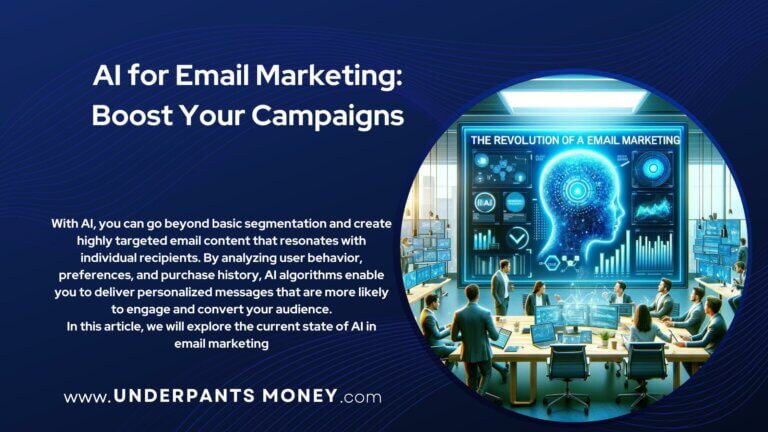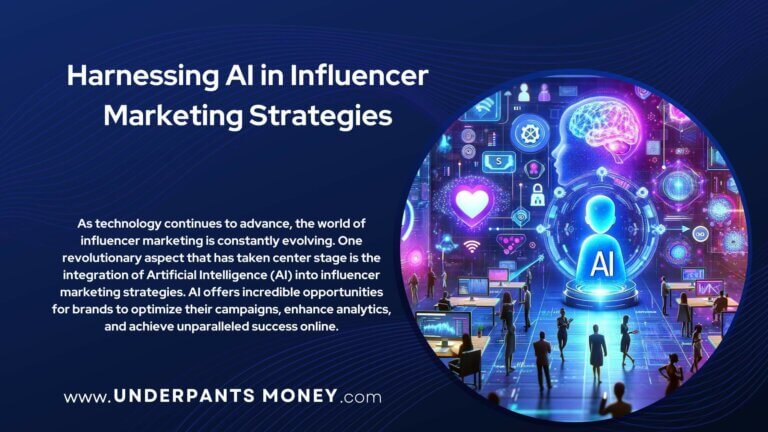AI for Content Analytics: Boost Your Strategy
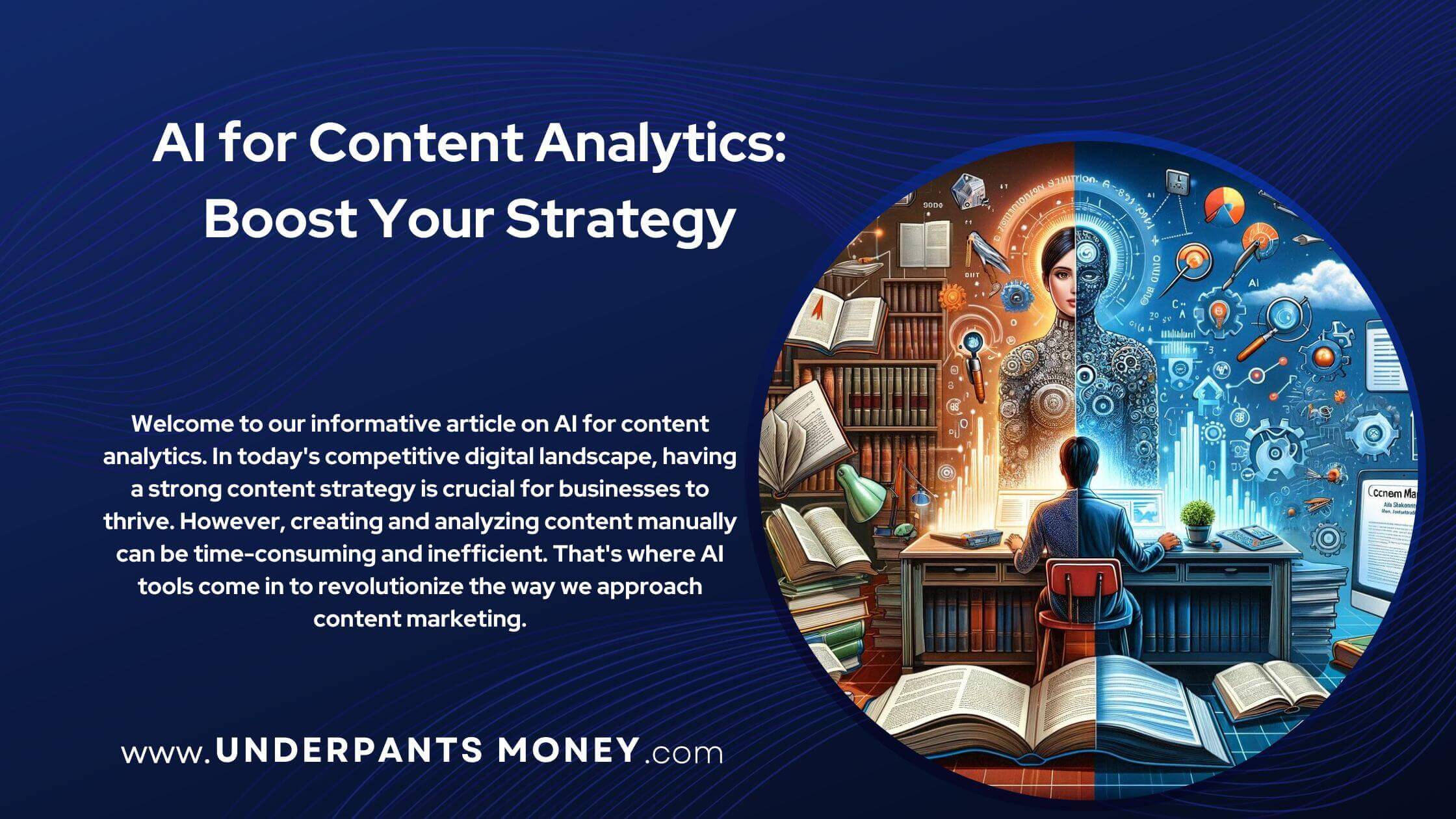
Welcome to our informative article on AI for content analytics. In today’s competitive digital landscape, having a strong content strategy is crucial for businesses to thrive. However, creating and analyzing content manually can be time-consuming and inefficient. That’s where AI tools come in to revolutionize the way we approach content marketing.
AI tools can automate content analysis, deliver data-driven insights, and provide valuable competitive information. By leveraging text analysis tools and automated content analysis, businesses can enhance their content strategy and stay ahead of the competition.
Throughout this article, we will explore the top 7 AI tools that can boost your content strategy and help you gain competitive insights. From AI-powered content generation to natural language processing and AI-powered SEO research, these tools offer a wide range of functionalities to elevate your content marketing efforts.
So, let’s dive into the world of AI for content analytics and discover how these tools can transform your approach to content creation and distribution.

Key Takeaways:
- AI tools can automate and optimize various aspects of content creation and distribution.
- AI-powered content generation tools help meet the demand for content by using natural language generation technology.
- Natural language processing tools help analyze audience language and behavior for audience understanding.
- AI-powered SEO and keyword research tools aid in content optimization and improving search engine visibility.
- Content curation and recommendation engines powered by AI enhance audience engagement and content distribution.
AI-Powered Content Generation
One of the key challenges in content marketing is meeting the ever-growing demand for quality content. Creating engaging and informative content consistently can be time-consuming and resource-intensive. However, thanks to AI-powered content generation tools, this challenge can be overcome effectively.
AI-powered content generation utilizes natural language generation (NLG) technology to automate the process of content creation. These tools can analyze keywords, topics, or outlines and generate content that aligns with the desired parameters. By leveraging AI, businesses can save time, ensure consistency and quality, and generate new ideas for content.
Popular AI-powered content generation tools like OpenAI and Copysmith have gained immense popularity due to their ability to streamline content production. These tools are equipped with advanced algorithms that can produce human-like content, making it difficult to distinguish between machine-generated and manually-written content.
AI-generated content can be tailored to meet various content demands, including blog posts, social media updates, product descriptions, and more. This AI-driven approach has proven to be particularly useful for businesses operating in content-heavy industries or those seeking to scale their content creation efforts.
Additionally, AI-powered content generation can assist in brainstorming ideas by providing suggestions and insights based on the specific topic or niche. This feature enables content creators to explore fresh perspectives and innovative approaches to captivate their audience.
In conclusion, AI-powered content generation has revolutionized the way businesses create content to fulfill the growing content demand. By harnessing the power of AI and natural language generation, content creators can streamline their processes, improve efficiency, and meet the expectations of their audience.
| Benefits of AI-Powered Content Generation | Examples of AI-powered Content Generation Tools |
|---|---|
| Saves time and resources Ensures consistency and quality Generates new content ideas Improves content production efficiency Enhances scalability of content creation | OpenAI Copysmith |
Natural Language Processing for Audience Understanding
Understanding your audience is vital for effective content marketing.
Natural language processing (NLP) tools can help analyze audience language and behavior, extracting insights on sentiment, emotions, intent, opinions, and questions. These insights can be used to craft tailored and personalized content, measure and improve content performance, and address audience pain points.
The Power of NLP in Audience Understanding
NLP enables businesses to gain a deep understanding of their audience by analyzing the language they use and the emotions behind their words. Sentiment analysis allows marketers to gauge whether the sentiment expressed by their audience is positive, negative, or neutral. By understanding the sentiment, marketers can adapt their content strategy accordingly to better resonate with their audience.
Opinion Analysis for Audience Insights
Opinion analysis is another valuable application of NLP in audience understanding. It allows marketers to identify the opinions and preferences of their audience towards specific topics, products, or brands. This information can be used to tailor content to match the audience’s interests and preferences, fostering deeper engagement and building brand loyalty.
Using NLP for Content Performance Measurement
NLP tools provide valuable metrics to measure and improve content performance. By analyzing audience responses and feedback, marketers can identify content gaps, optimize messaging, and enhance overall content effectiveness.
Additionally, NLP can also help identify audience questions and pain points. By understanding the questions and challenges faced by their audience, marketers can create content that directly addresses these needs, positioning themselves as valuable resources and building trust with their audience.
NLP Tools for Audience Understanding
There are several notable NLP tools available to help marketers gain a deeper understanding of their audience:
- MonkeyLearn: A versatile NLP tool that offers sentiment analysis, opinion mining, and intent recognition capabilities.
- AnswerThePublic: This tool uses NLP to generate insights on the questions and queries audiences have on a particular topic.
- Linguix: Linguix provides AI-powered writing assistance that includes grammar checking, style improvement, and tone analysis, enabling marketers to create content that resonates with their audience.
By leveraging these powerful NLP tools, marketers can gain a profound understanding of their audience, optimize their content strategy, and create impactful and engaging content tailored to their audience’s needs.

AI-Powered SEO and Keyword Research
Optimizing content for search engines is crucial for visibility and ranking. With the advancements in AI technology, AI-powered SEO and keyword research tools have become indispensable for content creators. These tools utilize machine learning algorithms to analyze vast amounts of data and provide valuable insights for content optimization.
By utilizing AI-powered SEO tools, content creators can:
✓ Identify the best keywords and topics for their target audience
✓ Optimize content structure and metadata for improved search engine rankings
✓ Stay ahead of SEO trends and algorithm changes
One of the most popular and effective AI-powered SEO tools is SEMrush. This tool offers a comprehensive suite of features including keyword research, competitor analysis, and content optimization recommendations. It provides a wealth of data to help content creators make data-driven decisions and achieve better search engine rankings.

Another notable AI-powered SEO tool is MarketMuse. This tool uses artificial intelligence to analyze a website’s content, identify gaps and opportunities, and provide recommendations for optimizing content. It helps content creators create comprehensive and relevant content that meets the needs of their target audience.
Lastly, we have Frase, an AI-powered content optimization platform. This tool uses natural language processing and machine learning to analyze content and provide actionable recommendations for improving search engine rankings. It helps content creators create content that is not only optimized for search engines but also provides valuable information to their audience.
The following table provides a comparison of the key features and pricing of these three popular AI-powered SEO and keyword research tools:
| AI-Powered SEO Tools | Key Features | Pricing |
|---|---|---|
| SEMrush | – Keyword research – Competitor analysis – Content optimization – SEO performance tracking | Starting from $99.95/month |
| MarketMuse | – Content gap analysis – Content optimization recommendations – Content performance tracking | Custom pricing |
| Frase | – Content optimization recommendations – Search engine ranking tracking – Competitor analysis | Starting from $45/month |
Content Curation and Recommendation Engines
Providing diverse and relevant content to your audience is crucial for engagement and retention. With the help of content curation and recommendation engines powered by AI, you can efficiently discover, filter, and deliver content that aligns with your audience’s interests and goals. This not only improves audience engagement but also strengthens their connection with your brand.
Content curation tools use AI algorithms to gather and organize content from various sources, ensuring the content you share is high-quality and tailored to your audience’s needs. These tools save time and effort by automating the content discovery process, allowing you to focus on other aspects of your content strategy.
Recommendation engines, on the other hand, use AI algorithms to analyze user behavior, preferences, and past interactions to deliver personalized content recommendations. By leveraging data-driven insights, these engines can suggest relevant articles, videos, or products to users, increasing their engagement and satisfaction.
Furthermore, content curation and recommendation engines help expand your content reach by promoting it across various channels. They enable you to distribute your content more effectively, increasing its visibility and attracting a wider audience.
Noteworthy Content Curation and Recommendation Engines:
- Curata: Curata is a comprehensive content curation platform that allows you to collect, organize, and distribute content from multiple sources. Its AI-powered algorithms ensure that the curated content matches your audience’s interests, enhancing their engagement and loyalty.
- Scoop.it: Scoop.it is another popular content curation platform that enables you to discover and share content relevant to your audience. Its AI technology surfaces the most relevant and up-to-date content based on your chosen topics, making it easier for you to curate content that resonates with your audience.
- Outbrain: Outbrain is a leading content discovery and recommendation platform that helps you amplify your content’s reach by reaching your target audience across a network of premium publishers’ websites. Its AI-driven algorithms deliver personalized content recommendations based on user interests and behavior, driving higher engagement and conversions.
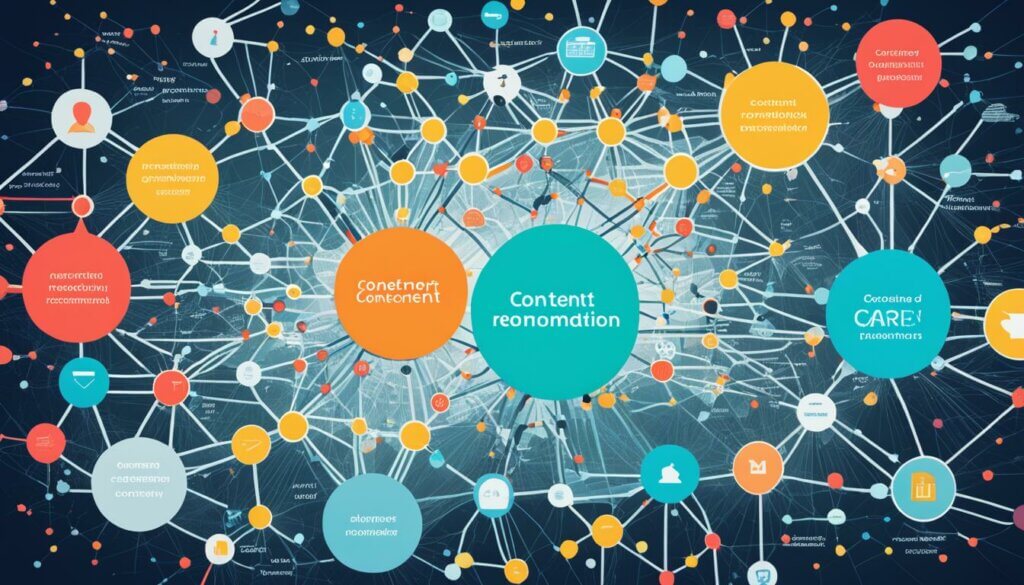
AI-Powered Content Editing and Proofreading
When it comes to content creation, ensuring high-quality and error-free content is crucial for maintaining credibility and professionalism. This is where AI-powered content editing and proofreading tools come into play. Utilizing advanced algorithms and language processing capabilities, these tools can detect and correct grammar, spelling, and punctuation errors, as well as enhance the overall content quality.
Grammarly, ProWritingAid, and Hemingway are among the most popular AI-powered content editing and proofreading tools in the market. Let’s take a closer look at each:
| Tool | Features | Pros | Cons |
|---|---|---|---|
| Grammarly | – Grammar and spelling correction – Vocabulary enhancement – Plagiarism detection | – User-friendly interface – Integrates with various platforms – Provides detailed explanations for corrections | – Premium features require a subscription – Limited functionality for free version |
| ProWritingAid | – Grammar, spelling, and punctuation correction – Writing style suggestions – Consistency checks | – Offers extensive reports and analysis – Integrates with popular writing software – Flexible pricing options | – Can be overwhelming for beginners – Requires internet connection |
| Hemingway Editor | – Simplifies complex sentences – Highlights passive voice – Provides readability scores | – Focuses on enhancing readability – User-friendly interface – Provides suggestions on improving sentence structure | – No plagiarism detection – No integration with popular writing platforms – Limited formatting options |
By integrating these AI-powered editing and proofreading tools into your content creation workflow, you can ensure that your content is error-free, well-structured, and optimized for readability. These tools not only save time and effort but also provide valuable insights and suggestions for improvement, resulting in content that engages and resonates with your audience.

Conclusion
AI has revolutionized content analytics and marketing strategies. By leveraging AI tools for content generation, audience understanding, SEO research, curation, editing, and analytics, businesses can elevate their content strategies, improve engagement, and gain competitive insights. Incorporating AI into your content marketing efforts is a powerful way to transform data into action and achieve optimal results.
With AI-powered content generation tools like OpenAI and Copysmith, businesses can meet the demand for content and save time while ensuring consistency and quality. Natural language processing (NLP) tools such as MonkeyLearn, AnswerThePublic, and Linguix offer valuable insights into audience language and behavior, allowing businesses to personalize content, measure performance, and address pain points.
AI-powered SEO and keyword research tools like SEMrush, MarketMuse, and Frase help businesses optimize their content for search engines, identify relevant keywords, and stay on top of SEO trends. Content curation and recommendation engines powered by AI, such as Curata, Scoop.it, and Outbrain, enable businesses to provide diverse and relevant content that matches their audience’s interests and goals.
Furthermore, AI-powered content editing and proofreading tools like Grammarly, ProWritingAid, and Hemingway ensure content quality by detecting errors and providing suggestions for improvement. By incorporating AI into content analytics and marketing strategies, businesses can unlock the full potential of their data and achieve optimal results in their content marketing efforts.
FAQ
What is AI for content analytics?
AI for content analytics refers to the use of artificial intelligence tools and technologies to gain insights, optimize, and automate various aspects of content creation, distribution, and performance analysis.
How can AI tools enhance my content strategy?
AI tools can enhance your content strategy by automating content generation, analyzing audience behavior, optimizing content for search engines, curating relevant content, editing and proofreading, and providing data-driven insights for better decision-making.
How can AI-powered content generation tools help overcome content demand challenges?
AI-powered content generation tools use natural language generation technology to create content based on keywords, topics, or outlines. These tools can save time, ensure consistency and quality, and generate new ideas for content.
How can natural language processing tools benefit audience understanding?
Natural language processing tools can analyze audience language and behavior, extract insights on sentiment, emotions, intent, opinions, and questions. These insights can be used to craft tailored and personalized content, measure and improve content performance, and address audience pain points.
How can AI-powered SEO and keyword research tools improve content optimization?
AI-powered SEO and keyword research tools can help identify the best keywords and topics, optimize content structure and metadata, and provide insights on SEO performance and trends. These tools can enhance content visibility, ranking, and organic traffic.
How can content curation and recommendation engines powered by AI benefit my content marketing efforts?
Content curation and recommendation engines powered by AI can help discover, filter, and deliver content that matches audience interests and goals. These tools can expand content reach, enhance value and authority, and promote content across various channels.
How can AI-powered content editing and proofreading tools improve content quality?
AI-powered content editing and proofreading tools can detect and correct errors, enhance content quality, and provide suggestions for improvement. These tools can improve grammar, spelling, and style, ensuring professional and error-free content.

